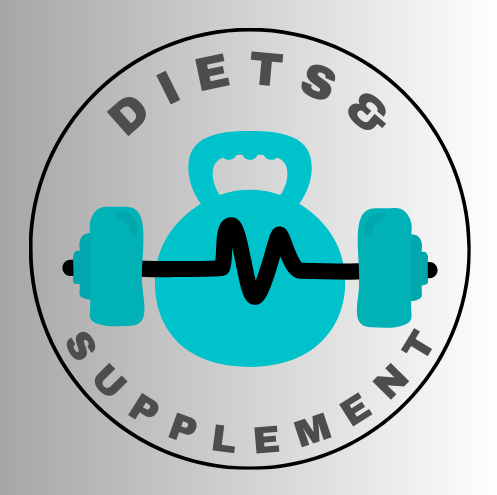 When I set out to increase my muscle mass, like me, you might wonder about where to start. Nutrition is your starting line. It’s the foundation that will support every curl, press, and squat. I’ve learned that without the right fuel, my body can’t construct the muscle fibers needed for those gains. Here’s how I make sure I’m feeding my muscles the right way.
When I set out to increase my muscle mass, like me, you might wonder about where to start. Nutrition is your starting line. It’s the foundation that will support every curl, press, and squat. I’ve learned that without the right fuel, my body can’t construct the muscle fibers needed for those gains. Here’s how I make sure I’m feeding my muscles the right way.
I pay attention to my macronutrients – those are proteins, carbohydrates, and fats. Proteins are the building blocks of muscle, carbs fuel my workouts, and fats play a key role in hormone production, which aids muscle growth. It’s not just about increasing protein intake; I ensure that all these macros are balanced throughout my meals.
But food isn’t just about the ‘what’; it’s also about the ‘how much’. To build muscle, my body requires more energy than usual, which means eating more calories than I burn. This calorie surplus is crucial, as it provides the energy needed for my body to synthesise new muscle tissue.
=====>Try the kettlebell workout<=====
Hydration also plays a pivotal role. I drink plenty of water because it helps transport nutrients to my muscle cells, supports metabolic processes, and prevents dehydration, which can significantly hamper performance and recovery.
In summary, I focus on the right mix of macros, ensure a calorie surplus, and stay hydrated. This approach not only supports my muscle growth but also maintains my overall health. Next, I’ll take you through the specifics of protein – the powerhouse of muscle-building – to grasp how it serves as the central player in this process.
Protein Power: Optimizing Intake for Maximum Muscle
Protein is the building block of muscles; getting enough of it is crucial for muscle repair and growth. I’ll guide you through how much protein you need based on your body weight and physical activity levels. Common recommendations suggest that someone engaging in regular strength training should aim for about 0.7 to 1 gram of protein per pound of body weight per day.
Where you get your protein from matters as well. I’ll touch on high-quality sources such as lean meats, eggs, dairy, legumes, and plant-based alternatives. It’s not just about quantity, but quality. Complete proteins, which contain all the essential amino acids, are vital for muscle building.
Protein’s timing can be as important as the amount you consume. Research suggests that having protein immediately after a workout can help in muscle recovery. However, it’s also important not to overlook protein distribution throughout the day to continually repair and build muscle tissue.
It’s common to hear concerns about high protein intake and kidney health. Current evidence indicates that for individuals with healthy kidneys, a high-protein diet is not harmful. However, for those with pre-existing kidney conditions, it may be necessary to moderate protein intake. Always consult a healthcare provider for advice tailored to your personal health situation.
Vitamins and Minerals: The Unsung Heroes of Muscle Gain
When embarking on a muscle-building plan, many people focus solely on protein and calories. However, vitamins and minerals are just as crucial for muscle development and recovery. They’re often overlooked, but they play a pivotal role in many bodily functions, including those that help you get stronger and more muscular.
Specific vitamins are as essential to muscle recovery as protein. For example, vitamin C is not only an antioxidant but it also helps in the synthesis of collagen, which is a key component of muscle tissue. B vitamins, particularly B6 and B12, are vital for energy production and the creation of new blood cells to support your growing muscles.
Minerals have their part in the muscle-building story as well. Calcium is known for its role in bone health, but it’s also essential for muscle contraction. Without sufficient calcium, you can’t achieve the muscle activation needed during your workouts. Vitamin D helps your body absorb calcium, making it a crucial partner.
Incorporating a variety of nutrient-dense foods into your diet ensures you’re getting these necessary vitamins and minerals. Leafy greens, fruits, dairy products, nuts, and whole grains carry a hefty nutrient punch that supports muscle gain.
Iron is also vital; it’s involved in oxygen transportation to your muscles, affecting stamina and endurance. Meanwhile, magnesium plays a role in muscle relaxation, and its deficiency can lead to cramping. Balancing these nutrients can elevate your training and aid in faster recovery after your workouts.
Now, as you understand the importance of micronutrients in your muscle-building diet, you might wonder how you can ensure you’re getting enough of them, and whether supplements are a part of the equation. Heading into the next section, the conversation turns towards supplementation strategies – when to consider them, what options are available, and how to choose high-quality supplements to enhance your muscle gain efforts safely.
Supplementation Strategies: When and What to Consider
Understanding when to turn to supplements can be a game-changer in your muscle-building routine. While real food should always be your primary source of nutrients, there are moments and specific needs where supplements can offer a convenient boost.
I’ll walk you through the common supplements like creatine, branched-chain amino acids (BCAAs), and omega-3 fatty acids, explaining how they can complement your nutrition. Creatine, for instance, can enhance your performance in high-intensity workouts, leading to improved muscle gain.
Now, you might wonder whether supplements are necessary. The answer isn’t straightforward, as it depends on your diet, workout intensity, and muscle-building goals. However, if you’re struggling to meet your protein or particular vitamin and mineral needs through food alone, supplements could fill that gap.
But before you start, it’s crucial to ensure you’re choosing high-quality options. Look for products with third-party testing and certification to guarantee safety and absence of harmful substances. Remember, the goal is to support your muscle-building efforts, not compromise your health.
In summary, while supplements should not replace whole foods, they can play a strategic role in your nutrition plan. Evaluate your individual needs, do your research, and consult a healthcare professional if needed to make informed decisions that align with your muscle-building goals.
